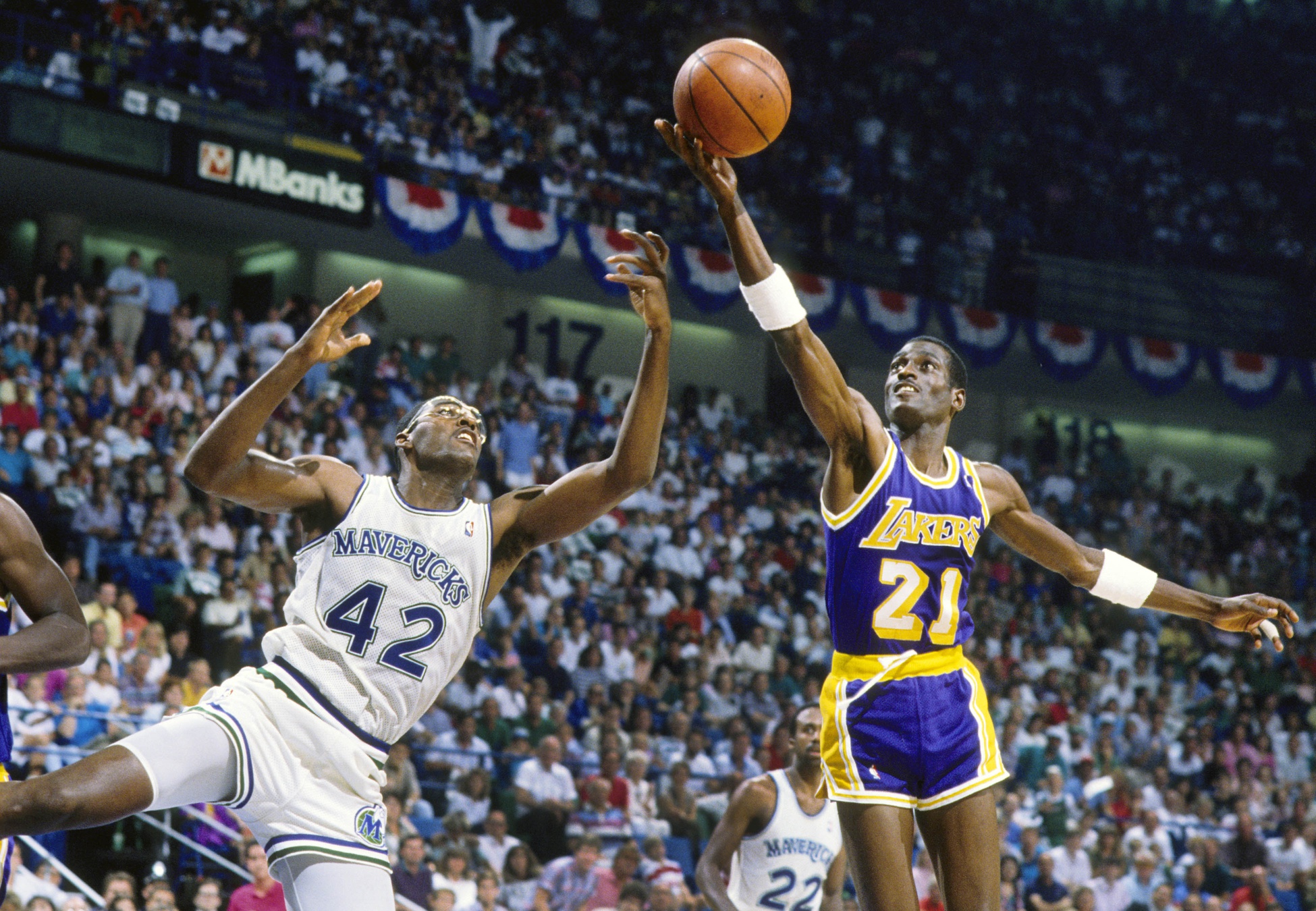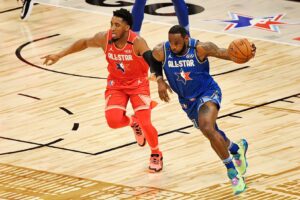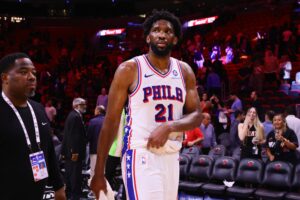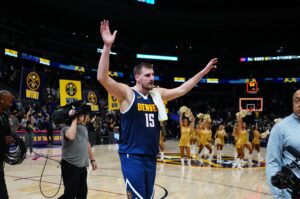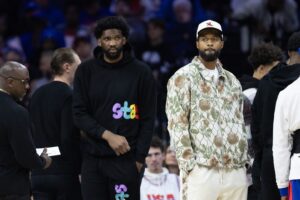On Friday, the Naismith Basketball Hall of Fame announced their finalists for the Class of 2024, which will be announced during the NCAA men’s Final Four in April. The list includes five men’s players that have been announced as finalists for their playing careers: Vince Carter, Chauncey Billups, Walter Davis, Dick Barnett, and Michael Cooper.
Let’s take a look at Michael Cooper’s playing career. Was it enough to see him become a member of the Class of 2024 (or a future year)?
Michael Cooper Named Finalist For Basketball Hall of Fame, Should He Get In?
Cooper Spent Whole NBA Playing Career with the Lakers
Michael Cooper was selected in the third round (60th overall) by the Los Angeles Lakers in the 1978 NBA Draft. The 6-7 shooting guard would go on to play 12 seasons in the league from 1978-79 until 1989-90, all with the Lakers. Cooper only played three games in his rookie season, but was a vital member of their rotation in his final 11 seasons, playing anywhere between 23.1 to 32.4 minutes per game in the regular season. In each of those 11 seasons, the Lakers would participate in the postseason.
Most NBA fans are aware of how dominant the Lakers were in the 1980s. Cooper owns five championship rings during that decade with Los Angeles (1980, 1982, 1985, 1987, and 1988). While it is undeniable that Cooper had a role in those championship runs, he wasn’t considered one of the star players. Those teams consisted of legends Magic Johnson, Kareem Abdul-Jabbar, and James Worthy.
Looking at Cooper’s career averages, one may wonder why he is even in consideration for the Basketball Hall of Fame. In 873 career regular season, his averages look somewhat pedestrian. They are 8.9 points, 3.2 rebounds, 4.2 assists, 1.2 steals, and 0.6 blocks in 27.1 minutes per contest. His postseason averages in 168 games are very similar. They are 9.4 points, 3.4 rebounds, 4.2 assists, 1.2 steals, and 0.6 blocks in 28.2 minutes an outing.
Cooper never was named an All-Star or All-NBA member. So yes, he has five rings, but why is he a finalist when he wasn’t all that productive?
One of the Best Defensive Guards of his Era
Despite All-Star nods, and no All-NBA nods, Cooper had plenty of appearances on All-Defensive teams. He was named to an All-Defensive team for eight straight seasons from 1980-81 until 1987-88 (five First, three Second Team). Cooper received the ultimate honor for his defensive prowess when he was named Defensive Player of the Year in 1986-87. He is just one of six guards in league history to receive the award along with Sidney Moncrief, Alvin Robertson, Michael Jordan, Gary Payton, and Marcus Smart. Cooper also had Defensive Player of the Year finishes of third, fourth (twice), and fifth in his career.
Will Cooper Get The Call To Springfield?
Basketball Reference lists his Hall of Fame probability at a microscopic 0.9%. When going to Basketball Reference’s similarity scores, the most similar players to him during his career are Nate McMillan, Jeff Malone, Dick McGuire, Lou Williams, Kyle Korver, John Lucas, Vinnie Johnson, JJ Redick, Tyrone Corbin, and Darren Collison. While McGuire is in the Basketball Hall of Fame, he played during the league’s infancy. There aren’t many clamoring for those other names to be enshrined.
While Cooper excelled on defense, he wasn’t seen as one of the three best players on the Lakers championship teams. Along with the three Hall of Famers previously mentioned, it can be at least argued in other championship seasons that Jamaal Wilkes, Norm Nixon, and/or Byron Scott were better overall players than Cooper.
Bruce Bowen is also an eight-time All-Defensive member while winning three championships with the Spurs. While he never won Defensive Player of the Year, he was runner-up three times. An important player for San Antonio? Absolutely. Hall of Famer? No.
Cooper has two more rings and was a little bit of a better scorer than Bowen. To me though, production and accolades have to be somewhat of the equation to get in. As mentioned, Cooper never made an All-Star or All-NBA team. The Basketball Hall of Fame has widely been seen as the easiest to get into. But even with that, I’d have to say Cooper is more Hall of Very Good.


